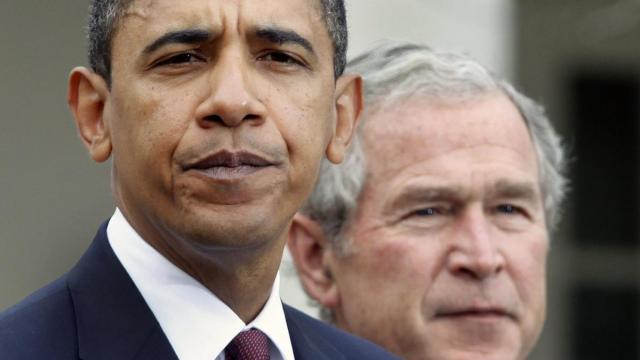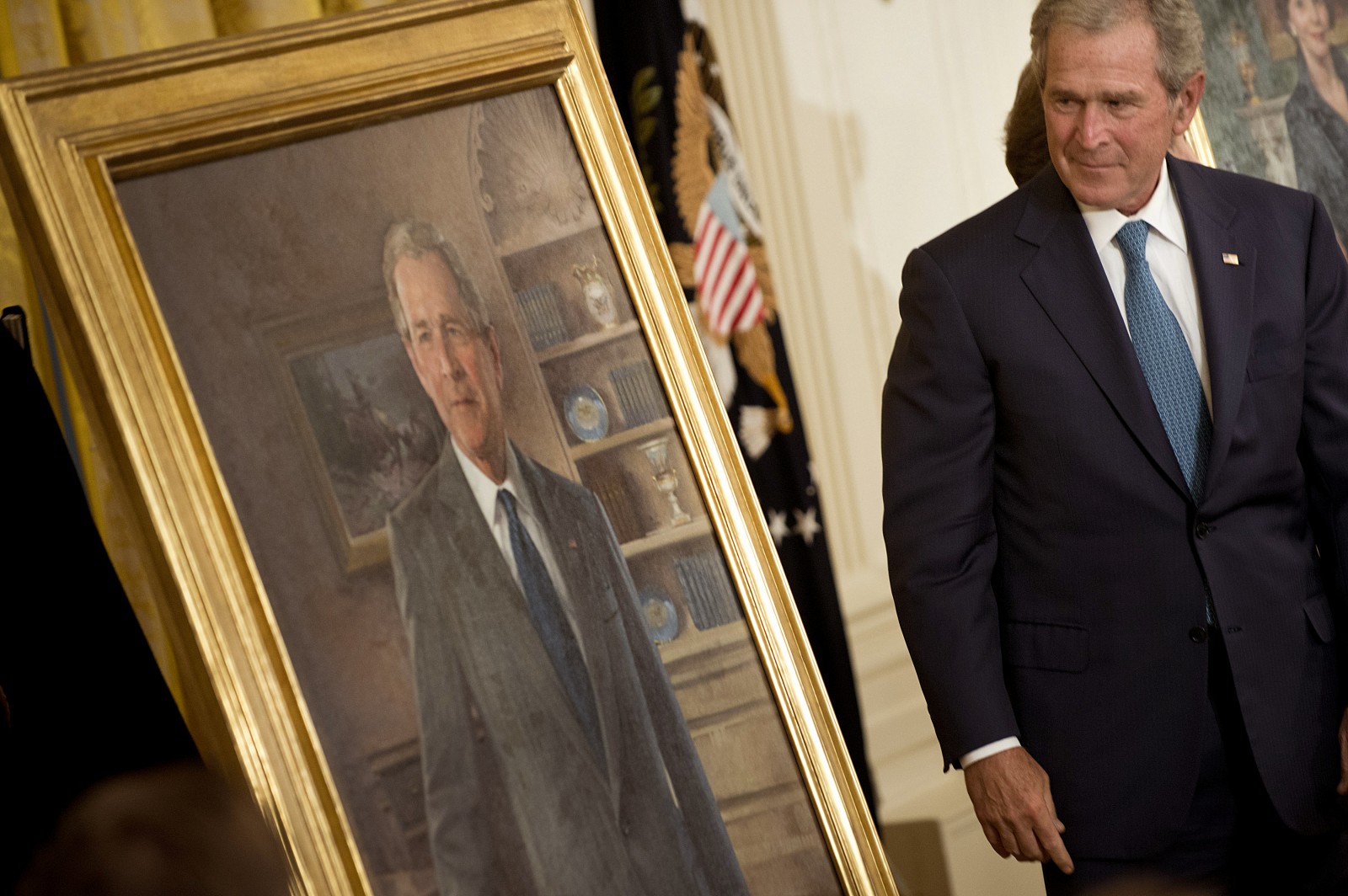
Barack Obama built up much of his electoral base as a critic of George W Bush's policies, from war to surveillance. In office, he has pursued many of the same policies even more vigorously, and nowhere is this more true than in his hoarding of executive power. The administration's collection of phone records data, and its legal defenses thereof, illustrate the problem acutely.
In opposition, Obama criticized Bush's policy of spying on citizens' phone calls – under the rubric of the so-called Terrorist Surveillance Program – and threatened to filibuster a bill being pushed through the Senate in 2008 to retroactively legalese the practice. He voted for the bill, but protested that he was doing so reluctantly. He claimed to oppose the attempt to give legal cover to the previous administration and the companies colluding in its actions.
Yet, once in office, Obama continued the policy of intrusion on a vast and indiscriminate scale. The same can be said for his attorney general, Eric Holder, once a firm critic of the Bush administration's spying, now a firm practitioner of the same. Perhaps most alarmingly, the Obama team has continued with the same legal doctrines.
Prior to the 2008 amendments of the Foreign Intelligence Surveillance Act (FISA), the law stated that the government could not spy on domestic calls unless a court believed there was probable cause to believe the target of surveillance was an agent of a foreign power. It would be a mistake to underestimate the Bush administration's legal virtuosity, however. Just as it displayed considerable creativity in legalizing Guantánamo and torture, its justifications for warrantless wiretapping inventively cited the post-9/11 Authorization for the Use of Military Force as an implicit repudiation of sections of FISA.
It used to be said that the Nazi legal scholar Carl Schmitt was the true éminence grise of the Bush administration: that the principle of a "state of exception" was being invoked, post-9/11, to bestow führer-like power on the president. Certainly, there was a sense in which they treated the law as – in the words of the title of John Yoo's memoir – war by other means.
Belying the "state of exception" analysis, however, Obama has adopted the Bush administration's legal definitions, and tried to block any judicial ruling that any laws were evaded or broken under the Bush administration. He has also sought, with some success, to invoke the doctrine of state secrecy to prevent any judicial review of potentially criminal actions in the Bush era.
In the case of wiretapping, this includes the scandalous instance in which the government spied on communications between lawyers and their clients, the Al-Haramain Islamic Foundation, in the context of a federal action against the charity. Though the charity had documentary proof of the Bush administration doing this, the Obama administration moved to prevent the document from being considered by a court, citing state secrecy. And while promising self-restraint in the use of this doctrine, it has continually had recourse to it.
The doctrine of state secrecy even extends to the legal justifications for collecting data on phone calls. Glenn Greenwald refers to"numerous cryptic public warnings by two U.S. senators" who warn of "secret legal interpretations" to justify a staggering expansion of the surveillance remit. They say: "There is now a significant gap between what most Americans think the law allows and what the government secretly claims the law allows."
Technically, one could argue that there is no need for this surveillance. The inspector general of five federal intelligence bureaucracies published a report in 2009 indicating that FISA's requirements had in no way hindered intelligence-gathering efforts. That may be missing the point, however. Expanding the state's ability to gather information on citizens, no matter what the justification, always increases its options – be they repressive or productive. Further, the convergence of spying on the one hand and secrecy on the other is just characteristic of the state's tendency to monopolize information.
The conventional liberal critique of such practices is prudential. As the liberal writer Stephen Holmes argued, secrecy undermines security by allowing the state to conceal and perpetuate errors. It removes the necessity to have plausible reasons for one's policies, so that eventually one stops having plausible reasons. These strictures apply even more in the case of emergencies. Holmes evoked the image of an emergency room, in which medical staff are having to cope with life-threatening situations; unless their behavior is governed by certain rules, medical staff will be prone to error.
This metaphor may work, if we assume the patient is a crisis-stricken American capitalism and its global authority. Obama's hoarding of executive power can only be understood in the context of his mission to restore American global power, rationalize its productive base, and expand the state's capacity to process dysfunctions. In this respect, his agenda is not fundamentally dissimilar from that of his predecessor, which is why he needs many of the same means.
3 WAYS TO SHOW YOUR SUPPORT
- Log in to post comments














